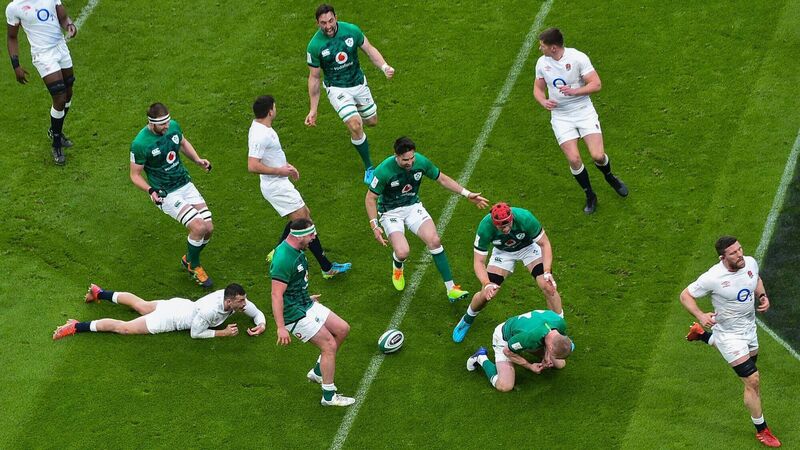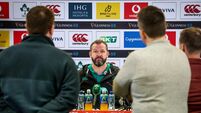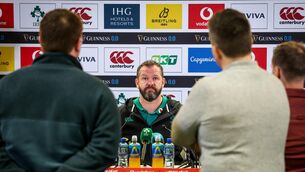Donal Lenihan: Ireland add attacking flair for satisfying end to Six Nations campaign

Iain Henderson, Rob Herring, Jack Conan, Conor Murray and Josh van der Flier celebrate a try by Keith Earls during the win over England in Dublin.
Super Saturday has come and gone but the Six Nations trophy remains to be presented.
In a remarkable finish to a pulsating game at the Stade de France, Wales were denied the Grand Slam they appeared destined to win due to an incredible comeback from the French, scoring two tries in the last six minutes of dazzling action.













